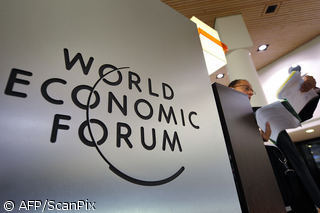The European Union’s monetary affairs chief will soften his recently proposed stance on the Exchange Rate Mechanism 2 (ERM2) for Poland
Published:
4 June 2003 y., Wednesday
The European Union’s monetary affairs chief will soften his recently proposed stance on the Exchange Rate Mechanism 2 (ERM2) for Poland as the country begins to show signs that it will meet Maastrict criteria, Warsaw-based economists and market watchers say.
Adding confusion to the already scattered debate on the potential for the country to adopt the euro quickly, Pedro Solbes, the EU’s monetary affairs commissioner, declared that accession countries would be forced to abide by a narrow exchange rate band of plus or minus 2.25% to the euro. This threatened, for Poland in particular, the more manageable plus or minus 15% that current euro-zone countries enjoyed after the European Union’s first ERM fell apart in the early 1990s.
Critics of this “impossible” clause say Solbes’ statement illustrates the EU’s own fear of being able to swallow 10 new economies – of which Poland’s is the largest – at the same time as some member states record ballooning budget deficits and rising unemployment. Those fears will calm, say economists.
“The biggest problem is whether the euro-zone is ready to accept accession countries, in particular Poland,” said Marcin Mróz, senior economist at SG Bank. “Poland has bigger problems. Mainly the problem the EU (has with Poland) is highlighted by the recent statement by monetary affairs commissioner Pedro Solbes, (which aims) to discourage new countries from joining the euro.”
Šaltinis:
wbj.pl
Copying, publishing, announcing any information from the News.lt portal without written permission of News.lt editorial office is prohibited.
The most popular articles
 Reform of the banking system was one of the key themes at this year's World Economic Forum in Davos, with bankers coming in for a lot of criticism.
more »
Reform of the banking system was one of the key themes at this year's World Economic Forum in Davos, with bankers coming in for a lot of criticism.
more »
 Small firms have been hard hit by the economic crisis, and so must be given incentives and support, including easier access to credit, help with innovation, tax breaks and less red tape, MEPs on Parliament's Special Committee on the Financial, Economic and Social Crisis (CRIS), and experts agreed at a workshop on Monday.
more »
Small firms have been hard hit by the economic crisis, and so must be given incentives and support, including easier access to credit, help with innovation, tax breaks and less red tape, MEPs on Parliament's Special Committee on the Financial, Economic and Social Crisis (CRIS), and experts agreed at a workshop on Monday.
more »
 The elections and investiture of Porfirio Lobo as President of Honduras have cleared the way for the EU to restore normal relations with the Central American country and negotiations for signing a bi-regional Association Agreement may soon resume.
more »
The elections and investiture of Porfirio Lobo as President of Honduras have cleared the way for the EU to restore normal relations with the Central American country and negotiations for signing a bi-regional Association Agreement may soon resume.
more »
 The European Commission has approved applications from Lithuania for assistance under the European Globalisation Adjustment Fund (EGF).
more »
The European Commission has approved applications from Lithuania for assistance under the European Globalisation Adjustment Fund (EGF).
more »
 The European Commission has decided to refer Italy to the European Court of Justice (ECJ) on the basis of Article 108(2) of the Treaty on the Functioning of the European Union (TFEU) for failing to comply with a Commission decision of July 2008.
more »
The European Commission has decided to refer Italy to the European Court of Justice (ECJ) on the basis of Article 108(2) of the Treaty on the Functioning of the European Union (TFEU) for failing to comply with a Commission decision of July 2008.
more »
 The EBRD is helping to strengthen the financial sector in Bosnia-Herzegovina (BiH) with a €50 million credit line to the Deposit Insurance Agency of Bosnia and Herzegovina (DIA), the Bank’s first investment in a deposit insurance entity.
more »
The EBRD is helping to strengthen the financial sector in Bosnia-Herzegovina (BiH) with a €50 million credit line to the Deposit Insurance Agency of Bosnia and Herzegovina (DIA), the Bank’s first investment in a deposit insurance entity.
more »
 In its first investment in the natural resources sector in Bosnia and Herzegovina, the EBRD is providing a €17 million sovereign loan to finance the gasification of the Central Bosnia Canton.
more »
In its first investment in the natural resources sector in Bosnia and Herzegovina, the EBRD is providing a €17 million sovereign loan to finance the gasification of the Central Bosnia Canton.
more »
 The EBRD is increasing the availability of financing to private businesses in Armenia with a $5 million credit line and a $3 million trade finance facility to ArmSwissBank for small and medium companies (SMEs).
more »
The EBRD is increasing the availability of financing to private businesses in Armenia with a $5 million credit line and a $3 million trade finance facility to ArmSwissBank for small and medium companies (SMEs).
more »
 On January 27 the European Commission assessed the action taken by Lithuania, Malta, Latvia and Hungary in response to recommendations proposed by the Commission and endorsed by the Council in July 2009 in respect to the correction of their respective budget deficits.
more »
On January 27 the European Commission assessed the action taken by Lithuania, Malta, Latvia and Hungary in response to recommendations proposed by the Commission and endorsed by the Council in July 2009 in respect to the correction of their respective budget deficits.
more »
 EUROSTAT announced that Lithuania’s GDP rose by 6.1 % in the 3rd quarter of 2009 versus the previous quarter.
more »
EUROSTAT announced that Lithuania’s GDP rose by 6.1 % in the 3rd quarter of 2009 versus the previous quarter.
more »